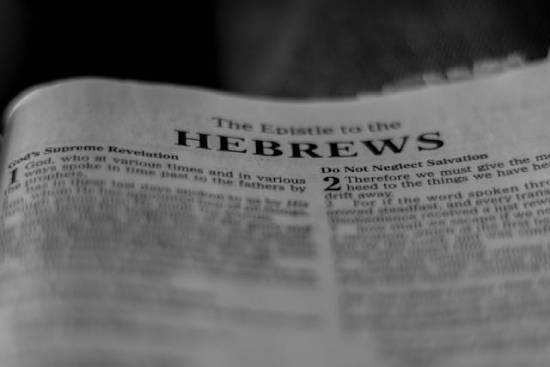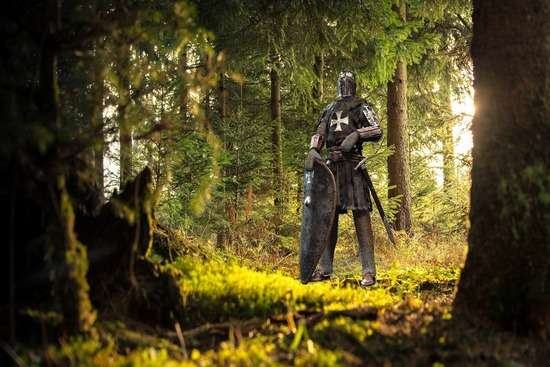“Covenant” is a theme throughout the Bible.
Christians often talk about the old and new covenants being separate, but in reality, Scripture is referring to different phases or renewals of the same one.
That’s why it’s called the everlasting covenant. The old and new covenants were always a part of God’s plan to save humanity from sin and reunite them with Him.
God gave it to Adam and Eve when He first promised to send a Deliverer to destroy sin (Genesis 3:15, when God describes Jesus crushing the head of the serpent). But God didn’t stop there. He repeated that promise throughout the Old Testament—to Noah, Abraham, the Israelites, and King David—until the New Testament, where we see its ultimate fulfillment in Jesus.
In short, this covenant is all about God’s promise to deliver us through Christ Jesus, who would take on our sins, offer us forgiveness, and place His law and character in our hearts and minds (Hebrews 8:8-12).
Let’s examine what the Bible has to say about the old and new covenants as we look at:
Since covenant isn’t a common word today, let’s start by defining it in modern terms.
What is a covenant in the Bible?

Photo by RDNE Stock project
A covenant is a contract based on a relationship. Some other synonyms for it are agreement, promise, and pledge.
See, this is more than just the contract you make when you rent an apartment or hire a contractor.
It’s more like a marriage. It signifies the seriousness and importance of the relationship by establishing definitions, rules, and boundaries—and if any of those are broken, the relationship is hurt.
To those entering into a covenant, it tells them what they’re getting into, so there’s no doubt, misunderstanding, or miscommunication.
This kind of promise makes sense considering how the Bible always emphasizes God’s desire to have a loving relationship with us, and to be clear about the depth and importance of this relationship.
These kinds of agreements were common between people in ancient biblical times. Some examples are:
- The agreement Jacob made with his father-in-law Laban (Genesis 31:44)
- The agreement between Jonathan and David (1 Samuel 20:11-16)
According to the Seventh-day Adventist Bible Dictionary, there were two kinds of covenants in ancient times1:
- Between equals
- Between an inferior and a superior
When this promise is between equals, both individuals agree on the conditions, privileges, and responsibilities involved.
In the one between someone and their superior, the superior would specify these things for both parties.
The second, of course, is more reflective of the covenant God made with humanity in the sense that He specified the conditions, privileges, or responsibilities.
But He did even more than that.
He sent Jesus to uphold humanity’s responsibility when we failed on our end. Sinful human beings are incapable of perfectly keeping our promises to Him, but Jesus became a human so that He could live out our part—both as our example and our Deliverer.
God’s covenant, from the very beginning, pointed to that reality.
The everlasting covenant through biblical history
Since the Bible mentions an “old” and a “new” covenant, it can be easy to assume it’s talking about two different things. But with closer study, we find that they’re really phases of the same covenant God renewed with His people throughout Bible history (Genesis 3:15; 17:7; Hebrews 13:20).
Adventist scholar Roy Gane, PhD, describes it this way:
“In the Bible, the divine covenants are unified and function as phases of cumulative development in God’s overall plan. That is to say, they really form sub-covenants of one grand, overarching Covenant.”2
This “grand, overarching Covenant” is sometimes called the “everlasting covenant” in the Bible. It’s highlighted in the following passages:
“Incline your ear, and come to Me. Hear, and your soul shall live; And I will make an everlasting covenant with you—the sure mercies of David” (Isaiah 55:3, NKJV).
“Now may the God of peace who brought up our Lord Jesus from the dead, that great Shepherd of the sheep, through the blood of the everlasting covenant, make you complete in every good work to do His will, working in you what is well pleasing in His sight, through Jesus Christ, to whom be glory forever and ever” (Hebrews 13:20-21, NKJV).
God made this promise to His people in the beginning. But throughout the Old Testament, we can read about countless “covenant failures.”3 Even His chosen people, the nation He commissioned to represent Him to the rest of the world, failed to live up to their end.
But rather than throwing up His hands and giving up (like humans would likely do), God approached the Israelites and renewed His promise with them.
Roy Gane calls these renewals “God’s covenant initiatives,” which came after “transitional periods of decline” in God’s relationship with His people.4
He lists these covenant initiatives (with the transitional periods in between) as follows:
- The gospel promise to Adam
- Transitional period: The flood
- The promise to Noah
- Transitional period: People disperse from the Tower of Babel
- The promise to Abraham
- Transitional period: The Israelites in Egypt
- The promise to the Israelites
- Transitional period: The ark of the covenant taken
- The promise to King David
- Transitional period: Exile in Babylon
- The new covenant promise
Let’s explore each of these initiatives in more depth and see how they form a part of God’s everlasting covenant.
The Gospel promise to Adam and Eve
 In Eden, God established a covenant with Adam and Eve, both before and after they sinned.5
In Eden, God established a covenant with Adam and Eve, both before and after they sinned.5
The very first covenant involved a boundary—not to eat from the Tree of the Knowledge of Good and Evil (Genesis 2:15-17).
When Adam and Eve violated this promise, God didn’t give up on them—even though He had every right to do so. He loved them so much that He made a plan to save them from the sin that would now be part of their lives and bring them back into a restored relationship with Him.
The first mention of God’s Gospel promise to save humanity is revealed in the words He spoke to the serpent, who represents sin:
“And I will put enmity between you and the woman, and between your seed and her Seed; He shall bruise your head, and you shall bruise His heel” (Genesis 3:15, NKJV).
According to this promise, an offspring (“seed”) of the woman would come as a Deliverer and bruise the head of the serpent. In other words, God the Father promised to send a Messiah to save us from our sins. The only thing was, this Messiah wouldn’t be just anyone. It would be God the Son Himself, incarnated as a human being. In this way, God the Son would pay the penalty for humanity’s transgression. He would be “wounded on our behalf” (His heel would be bruised).6
It’s significant that God made this promise to the human race well before the existence of the nation of Israel.7
This demonstrates that God’s covenant promise wasn’t just with one group of people. God loves all His created children with the same love. So this promise was with everyone—Jews and Gentiles (non-Jews) alike (Romans 3:29; 9:23-24).
And it isn’t just a covenant of the past, either! Its “everlasting” promise reaches all the way to us, today.
(But we’re getting ahead of ourselves!)
Let’s explore the other places in Scripture that describe this covenant.
The promise to Noah
The first time the word covenant is used in the Bible is actually in the story of Noah (Genesis 6:18).
Hundreds of years had passed since Adam and Eve ate from the Tree of the Knowledge of Good and Evil. And since then, life on earth had deteriorated. By succumbing to selfishness, fear, greed, and all the awful and destructive manifestations of sin, almost all the people on earth had broken their relationship with God over and over, to the point of completely severing themselves from His presence and influence.
God was pained to see the sin and suffering humanity lived in. He knew that if humanity was to have another opportunity at escaping this misery, He would have to stop this now-rampant evil from flourishing. And because almost all of humanity had turned away from God, embraced the selfish way of sin, and cut themselves off from God’s covenant relationship, there was no choice left but to destroy the world in order to give the remnant of believing humans a fighting chance.
That remnant was one family. Even with the deep moral darkness of those times, Noah’s family was still faithful to God. So He instructed them to build an ark, and He preserved them through this worldwide flood that destroyed the earth, washing it clean of the harmful ways of life that had covered it.
Afterward, God renewed His covenant with Noah:
“Understand that I am establishing my covenant with you and your descendants after you, and with every living creature that is with you—birds, livestock, and all wildlife of the earth that are with you—all the animals of the earth that came out of the ark. I establish my covenant with you that never again will every creature be wiped out by floodwaters; there will never again be a flood to destroy the earth” (Genesis 9:9-11, CSB).
God gave Noah, and all of us, a rainbow as a sign of this promise (verses 12-17).
Unfortunately, though, future generations would again make the mistake of turning away from God in favor of selfish endeavors. But God still didn’t give up. He would look to renew His covenant with humanity once again through Abraham.
The promise to Abraham

Photo by Trinity Kubassek
The covenant God made with Abraham was a restatement of His promise to Adam and Eve. God called Abraham to leave his homeland and go to the Promised Land, where God would bless him as the father of a large, significant nation:
“I will make you a great nation; I will bless you, and make your name great; and you shall be a blessing. I will bless those who bless you, and I will curse him who curses you; and in you all the families of the earth shall be blessed” (Genesis 12:2-3, NKJV).
All the families of the earth would be blessed through Abraham because someday, the Messiah—the seed of the woman spoken about in Genesis 3:15—would come through His lineage.
Pastor and evangelist Ty Gibson explains that, in essence, God was saying to Abraham, “You’re the one I’m choosing…to initiate the lineage through which ultimately all the families of the earth are going to be blessed. This is pointing forward to the complete fulfillment of Jesus Christ as the Son of Abraham.”
Throughout Abraham’s life and experiences recorded in the Bible, God renewed His covenant with Abraham. This happened at least three times, often after Abraham failed to trust God’s promise.8
These renewals show us something beautiful about God:
He doesn’t give up on us.
When Abraham—and later Israel—failed to live up to their end of the covenant, God still came and renewed it with them. God was faithful.
Let’s zoom in for a moment on Genesis 15.
In this chapter, Abraham became worried about whether God’s promise would be fulfilled. He didn’t have any children. How could he become a great nation?
But God addressed his doubts:
“Look now toward heaven, and count the stars if you are able to number them. … So shall your descendants be” (Genesis 15:5, NKJV).
Then, God asked Abraham to do something that sounds a bit strange:
“‘Bring Me a three-year-old heifer, a three-year-old female goat, a three-year-old ram, a turtledove, and a young pigeon.’ Then he brought all these to Him and cut them in two, down the middle, and placed each piece opposite the other; but he did not cut the birds in two” (Genesis 15:9-10, NKJV).
This wouldn’t have been a strange ceremony in the ancient world, however. It was a symbolic ceremony for establishing a covenant.9
The Hebrew word for “make” in making a covenant is karat, which means “to cut.” God was literally “cutting a covenant” with Abraham.10
We use this same language today when we say things like “cut a deal” or “cut an agreement,” etc.
In ancient times, an individual would form a contract by cutting animals in half and walking between them. By doing this, the individual was essentially saying, “Let this happen to me if I don’t hold up my end.”
And that’s exactly what God did. In a pillar of fire and smoke, He passed between the cut animals (Genesis 15:17), swearing His very life to keep His promise (Hebrews 6:13-14).
And it wasn’t just any agreement—it was the everlasting one He would later keep and fulfill through Jesus (Genesis 17:19). God would indeed give His very life for our failure to keep it.
Find out more about the covenant God made with Abraham.
The Mosaic covenant

Photo by Frank Cone
God began to fulfill His promise to Abraham as his descendants grew into a great nation, the Israelites. After a famine forced them to move to Egypt for a time, years later they ended up in slavery until God miraculously delivered them under the leadership of Moses. Now they could again seek the Promised Land that Abraham was given.
But God’s relationship with His people was in disrepair. During their time in Egypt, the Israelites, to a great extent, had lost sight of who God was and what it meant to follow Him.
It was time to renew the covenant.
God wanted to help them understand His power and trustworthiness. And as freshly-liberated but largely uncivilized people, He also knew they needed instruction in how to obey His law of love in a functioning framework of a society. And finally, they needed something tangible to remind them of the pain and destruction of sin and the need for a Savior.
So, in Exodus 19-24, God approached the Israelites in a glorious display of thunder and lightning upon Mount Sinai and spoke His law to them.
As part of this covenant, God told the Israelites about the Ten Commandments—which were principles of the loving relationship God has wanted to have with us (and for us to have with each other) since the beginning (Genesis 2:2-3; 4:10-11).
He also gave the Israelites the Mosaic law, which consisted of new ceremonies and a sacrificial system to help them grow in practical knowledge and spiritual understanding. The sacrifices of various animals and the keeping of specific festivals specifically pointed forward to Jesus—the One who would act on behalf of all humanity to fulfill the covenant.
After being enslaved for so many years, the Mosaic law was necessary to help Israelites re-learn how to live as a nation. It would help them mature in their faith so they could more fully understand what God wanted to do for them.
Moses read the stipulations to them:
“Then [Moses] took the Book of the Covenant and read it in the hearing of the people. And they said, ‘All that the Lord has spoken we will do, and we will be obedient.’ And Moses took the blood and threw it on the people and said, ‘Behold the blood of the covenant that the Lord has made with you in accordance with all these words’” (Exodus 24:7-8, ESV).
The sprinkling of blood sealed the agreement (Hebrews 9:15-22), which was a common practice in ancient times.11
The Israelites had entered into a relationship with God once again.
But to a great extent, they still missed the point. They ambitiously promised to do all that God had spoken—including keep the Ten Commandments—while relying on themselves. They didn’t look to Him for strength and resolve.
And as a result, they couldn’t hold up their end of the deal. They fell short and turned away from God. Over and over and over again.
The book of Judges records their cycle of turning away from God, being taken captive by their enemies, and then seeking God again for deliverance. By the time we get to King David, God must again renew His covenant, which has repeatedly been broken by His people.
The promise to King David
The promise made to Adam and Eve and Abraham was again given to David, the second king of Israel (1 Samuel 13:14).
God repeats it in a slightly different way:
“He [David] shall build a house for My name, and I will establish the throne of his kingdom forever. I will be his Father, and he shall be My son. If he commits iniquity, I will chasten him with the rod of men and with the blows of the sons of men. But My mercy shall not depart from him, as I took it from Saul, whom I removed from before you. And your house and your kingdom shall be established forever before you. Your throne shall be established forever” (2 Samuel 7:13-16, NKJV).
Why would David’s house and kingdom be established forever?
Because the Messiah would come through His lineage and set up an everlasting kingdom. This is why many prophecies of Jesus spoke of Him as the Son of David (Jeremiah 23:5-6, ESV).
Unfortunately, even the upstanding David would fail to fully obey God and keep His covenant. And the same was true for many of the kings after him. Some would honor and serve God, while others turned the people of Israel away from God.
Eventually, because they continued to neglect God’s guidance for selfish ambition, fear, greed, or various things that enticed them about other nations, God allowed them to do as they chose, and they eventually were conquered and forced into captivity by Babylon. They had refused His protection, and there was nothing He could do because He will not violate our free will.
But even during these times of failure, God had plans to renew His promise:
“Behold, the days are coming, says the Lord, when I will make a new covenant with the house of Israel and with the house of Judah—not according to the covenant that I made with their fathers in the day that I took them by the hand to lead them out of the land of Egypt, My covenant which they broke, though I was a husband to them, says the Lord” (Jeremiah 31:31-32, NKJV).
Keep reading to learn more about that covenant, which includes us today.
The “new” covenant

Photo by picsbyphoenix
In Jeremiah 31, when God mourned the ways His people had broken His covenant, He looked forward to a “new” covenant He would make with His people:
“But this is the covenant that I will make with the house of Israel after those days, says the Lord: I will put My law in their minds, and write it on their hearts; and I will be their God, and they shall be My people.
No more shall every man teach his neighbor, and every man his brother, saying, ‘Know the Lord,’ for they all shall know Me, from the least of them to the greatest of them, says the Lord.
For I will forgive their iniquity, and their sin I will remember no more” (Jeremiah 31:33-34, NKJV).
Paul later repeats it in the book of Hebrews (chapter 8, verses 8-12). It consists of four promises from God:
- He will put His law (the Ten Commandments) in their minds and write them on their hearts.
- He will be their God, and they will be His people.
- All will know Him.
- He will give them mercy and no longer remember their sins.
This covenant was established when Jesus died on the Cross. He highlighted this at the Last Supper when He said the wine symbolized “the blood of the covenant” (Matthew 26:27-28, NKJV). Just as the agreement with Israel was renewed with the sprinkling of blood, Jesus would confirm the new covenant with His own blood.
He came and lived a perfect life—which we were not capable of doing after opting back in Eden to know both good and evil (Genesis 3:5, 22, CSB).
Then, He took our sins upon Him—all our failures to keep God’s covenant and obey His commandments—so that He could give us His goodness and faithfulness (2 Corinthians 5:21).
God pledged His life to not only uphold His end of the agreement, but also our end. A sacrifice of the highest level possible.
Then, He rose again and gave us His Holy Spirit to make the covenant a reality in each of our lives. Through His power, we can grow toward His character, which is reflected in the Ten Commandments (John 14:15-17).
But you may still be wondering, what’s the difference between the new covenant and those that came before?
What’s the difference between the old covenant the Israelites entered and the new?
The overall promise of the covenant is the same for both the old and the new. The main difference is in the promises to keep the covenant.
In Hebrews 8:7-8, Paul points out that the old covenant itself wasn’t the problem—the fault was with those who entered into it. They agreed to obey God’s covenant but soon broke it (Jeremiah 31:32).
The new covenant, though, is based on “better promises” (Hebrews 8:6, ESV).
Rather than trusting their own efforts, God’s people enter the new covenant by trusting in Jesus and what He fulfilled for them on the Cross.
Through Jesus, God promises to forgive their sins and write His law in their hearts and minds. God internalizes the law in them and makes it possible for them to be faithful to the covenant through His power.
And really, this was always the point.
Back in Eden, the everlasting covenant looked forward to a Messiah who would be victorious. And the ancient sacrificial and sanctuary services all pointed to the “Lamb of God who takes away the sin of the world” (John 1:29, NKJV).
So, as professor Jiří Moskala, ThD, PhD, points out, “This content of the new covenant was nothing new; it was only the renewed appeal to internalize God’s law, thus underscoring the continuity of this covenant.”12
The new covenant was simply all that God had promised coming true.
Theologian Roy Gane also emphasizes the following point:
“Contrary to common misconception, the difference between the Old Testament covenant phases and the ‘new covenant’ is not the difference between salvation through law in the former and salvation through grace in the latter.”13
Salvation always came through Jesus, as evidenced by the lambs that were sacrificed to help ancient Israel (and all humanity) understand the depth and purpose of what Jesus was going to do. In the Old Testament, God’s people looked forward to the coming Messiah. And now, we’re able to look back to the Messiah who has fulfilled the covenant and given us hope for the brightest future possible.
Rather than the ancient Israelite sanctuary, Jesus has gone, as our high priest, to the Most holy Place in the heavenly sanctuary so He can give us the power to be faithful to it (Hebrews 4:14-16).
Here’s a summary of the similarities and differences between these two:
The Everlasting CovenantSalvation for all humanity has always been through Jesus |
| “Old” Covenant | “New” Covenant |
| Looked forward to the Messiah (Genesis 3:15) | Looked back to the Messiah’s finished work (John 1:29) |
| Demonstrated by sacrifices and ceremonies of Mosaic law, which pointed to Jesus’ life, death, and resurrection (Hebrews 9:1) | No more need for the sacrifices and ceremonies of the Mosaic law (Ephesians 2:15) |
| The Ten Commandments written on stone (Deuteronomy 4:13) | The Ten Commandments written in our hearts (Hebrews 8:10) |
| Failed because the people of God failed to uphold their end (Exodus 24:7-8; Hebrews 8:8) | Succeeds because Jesus upholds our end and empowers us (Hebrews 8:6) |
| Symbols in the earthly sanctuary (Hebrews 9:1-10) | Jesus as our high priest in the heavenly sanctuary (Hebrews 9:11-12) |
How are the covenants relevant today?
Though we now live in the time of the new covenant, we can look back through the Old Testament and see God’s love and patience in His renewals of the covenant. These renewals paved the way for Jesus to confirm it at His death.
And we get to live in the reality of that.
As followers of Christ, we are still part of the lineage of Abraham, as the apostle Paul points out:
“And if you are Christ’s, then you are Abraham’s seed, and heirs according to the promise” (Galatians 3:29, NKJV).
In other words, the same everlasting covenant given to Abraham reaches to us.
Through it, God has promised to empower us in our Christian walk as we trust in Him:
“For I am not ashamed of the gospel of Christ, for it is the power of God to salvation for everyone who believes, for the Jew first and also for the Greek. For in it the righteousness of God is revealed from faith to faith; as it is written, ‘The just shall live by faith’” (Romans 1:16-17, NKJV).
The new covenant is all about this life of “faith to faith” in God. By faith, we receive forgiveness of sin. And by faith, we receive Jesus through His Holy Spirit working in our lives.
The Seventh-day Adventist Bible Commentary points this out, too:
“The new covenant succeeds because it is fulfilled, not in our own poor human strength, but in the power of faith in the indwelling Christ.”14
The covenants teach us that our salvation, our growth into Christ’s character, and our faithfulness to God are not because of anything we do, or any promises we make to God. Our promises will only fail. But Jesus has made a promise to do sanctifying work within us (Philippians 1:6).
And His promise won’t fail.
Wondering how you can have that kind of walk with God?
Related Articles
- Horn, Siegfried, Seventh-day Adventist Bible Dictionary, Revised Edition, (Review and Herald, 1979), p. 243.[↵]
- Gane, Roy, “The Role of God’s Moral Law, Including Sabbath, in the ‘New Covenant,’” Andrews University, 2003. [↵]
- Rafferty, James, “Covenant of Peace,” Table Talk. [↵]
- Gane, “The Role of God’s Moral Law, Including Sabbath, in the ‘New Covenant.’” [↵]
- Ibid. [↵]
- Gibson, Ty, MDiv, “Covenant of Peace,” Table Talk. [↵]
- Ibid. [↵]
- Genesis 15, 17, 22. [↵]
- Henry, Matthew, “Commentary on Genesis 15,” Blue Letter Bible, Mar 1, 1996. [↵]
- Gibson, Ty, “Covenant Cutting,” Light Bearers Ministry. [↵]
- F.D. Nichol, Seventh-day Adventist Bible Commentary, vol. 1, p. 632. [↵]
- Moskala, Jiří, “What Is New in the New Covenant?” Ministry, April 2023. [↵]
- Gane, “The Role of God’s Moral Law, Including Sabbath, in the ‘New Covenant.’” [↵]
- Nichol, Seventh-day Adventist Bible Commentary, vol. 1, p. 631. [↵]
More Answers
Can God Forgive Me?
In one way or another, every single one of us has made a sizeable mistake that we’re ashamed of.
Legalism in the Bible: Definition, Dangers, and Examples
Find out what the Bible says about legalism, why it’s dangerous, and how we can avoid it today.
Sin
While this might seem like a complicated question, there’s a simple way to look at it. Sin is a failure to love God and love others. It is the opposite of love.
How Does Forgiveness Really Work? What Does the Bible Say?
Forgiveness—a familiar word but often-misunderstood concept. Learn how the Bible defines it, how it’s supposed to work, and what it shows us about God.
The New Covenant—What It Is and What It Means for Us Today
The Bible talks about the covenant, or promise, God made to save us from sin. Learn more about the old and new covenants and why they matter to us.
Why Does God Allow Suffering?
Poverty, genocide, a school shooting. A tsunami or earthquake that wipes out thousands of lives and leaves behind mourning family members.
Does the Bible Teach Predestination?
your choices, actions, and habits really matter to your eternal destiny? Or is the path you choose in life predetermined, and your life is just following a script that’s been laid out for you?
How Do I Know God Has Forgiven My Sins?
Knowing you’re forgiven is a big part of finding freedom in Christianity. The Bible tells us that after we’ve prayed for God’s forgiveness, we can believe we’re forgiven and accept His gift of pardon.
How Does Jesus Christ Help Us Overcome Sin?
You might have heard the phrase somewhere about “gaining victory over sin” through “the power of Jesus Christ” or “through the blood of Jesus,” etc. But what does that mean exactly, and how does it all work…especially if we’re still having to live out our lives in a world that’s still full of sin?
What You Need to Know About Temptation and How to Resist It
Ever felt like you face the same temptation day after day? The one temptation that always seems to resurface?
It can be frustrating, yes. But be encouraged—being tempted doesn’t mean you have done anything wrong! And even if you give in to temptation, you are never too imperfect to come before God.
Faith and Works—Do Both Matter in the Christian Life?
In so many religions all throughout time, individuals work toward enlightenment, salvation, or the favor of a deity. People are taught subtly—or not so subtly—that if you only do enough good deeds, you’ll be worthy/ascended/redeemed/approved, etc.
What Is Salvation, and How Do I Get Saved?
Salvation, or being saved, is what God wants for all of us. And since God created us with free will, this salvation is ultimately our choice. We become “saved” by accepting that Jesus Christ died on the cross, taking the punishment meant for sinners upon Himself.
What the Bible Says About Tattoos (Are They a Sin?)
Only one Bible verse speaks directly to permanent, symbolic markings on the skin. It’s Leviticus 19:28, and it’s one item in a list of ways God told Israel to distance themselves from the pagan practices of the people they lived among.
Why is There Good and Evil in the World?
Human nature is capable of the most self-sacrificing and heroic acts—a soldier risking his life for his country, a mother protecting her children from harm, a man jumping into a swirling current to save someone who is drowning.
What is the Great Controversy?
The Great Controversy is a battle between good and evil that began when a beautiful angel rebelled in heaven. It’s the cause of the evil and suffering in our world today.


















